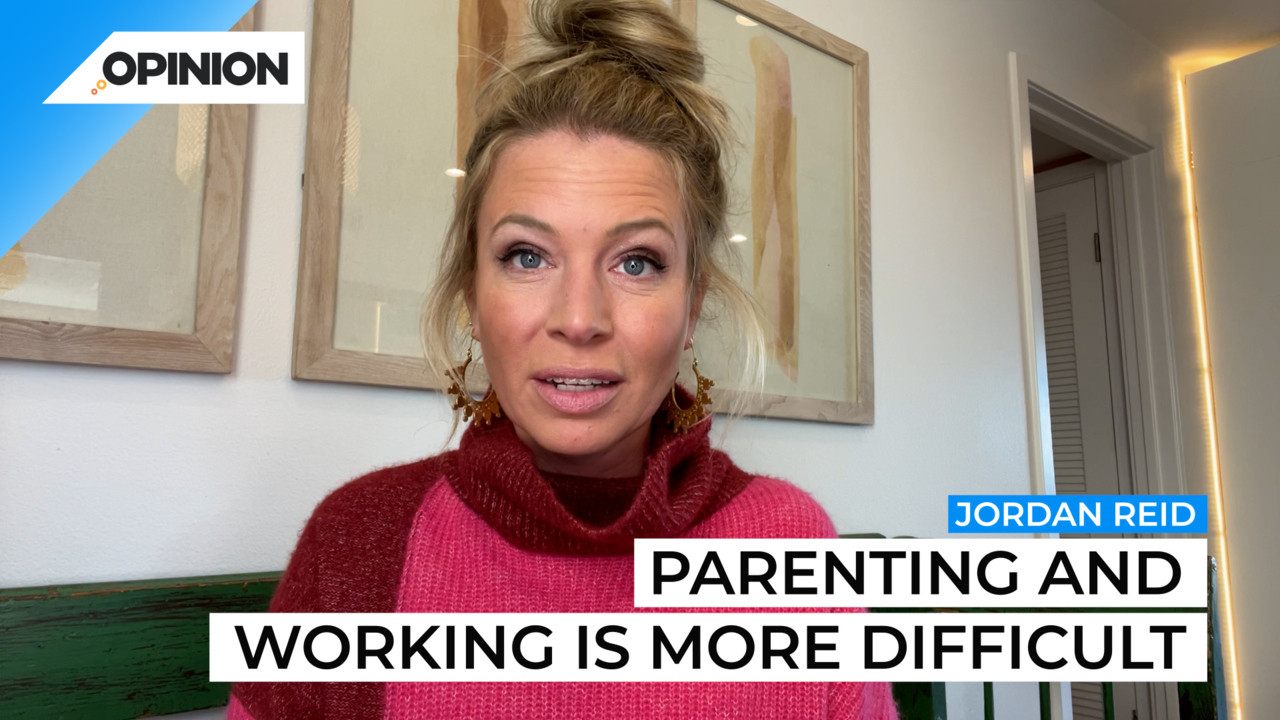
Commentary
-
Our commentary partners will help you reach your own conclusions on complex topics.
I watched the Hulu show Fleischmanns in trouble with particular interests given that just a few years ago true story, the book changed my life. On the surface Fleischman is in trouble is a show about divorce, but it’s it’s really about aging and ambition. And that moment that you you stop and you look around, you realize you’re not waiting for your life to start. This is it. There’s also been a very interesting cultural reaction to the show. It describes with startling accuracy, the midlife reckoning faced by a very particular subset of women. These are women whose on the surface privilege makes them very hard to describe with any real sense of empathy. Except I read the book that the show is based on shortly after getting divorced myself. And by the time I turn the last page, I was like sitting there open mouth, having just learned with razor sharp specificity, what had just happened to my marriage, and my life. So a big part of the release I felt when reading the book was the acknowledgement that you know, it’s a simple one, you would think, but not in our society, that while parenting is extremely difficult, parenting and working an outside job is more difficult. It’s almost impossible. In fact, unless those Affer mentioned privileges are in place, given that there is next to no structural support for parents in our society. The book holds that the condescension that suggests that stay at home mothers have the you know, the hardest job creates the risk of ignoring what’s happening to working mothers, which is that, frankly, they’re trapped in a system designed to break them.
You know, I worked and I and I also picked up the kids after school. And then I spent the rest of the day ignoring half of my job or half of my family depending on who had the most pressing need of the moment. And like so many other mothers like I made the playdates and I volunteered for the pumpkin patches, and I worried about the 529 accounts and I calendar, the whatever the PTA meetings, and if something came up with, you know, a child and they had to be picked up or they were sick, I was the one switching the meeting to the zoom and just you know, doing everything at once, because I could until I couldn’t. But what I was missing with the language to explain that I was doing too much while pretending that I was not. What Fleischmann is in trouble did was the book first and then the show as well gave me the language to describe the anger that I felt the rage of having so much of my day and my mental space and everything taken up by this avalanche of work that was seemingly invisible from the outside. And much of it was self imposed or imposed by cultural expectations. But it was there Nevertheless, the show reveals to us how silly the whole thing is the school admissions and the social networking and the dinner parties and all of it while also acknowledging its emotional weight. When as a professional or a parent or a woman, is it ever good enough? The answer not just from society, but from ourselves seems to be never and it is refreshing to see right there on the screen and an acknowledgement that we all of us are completely profoundly and legitimately exhausted.
-
RFK Jr.’s war on psychiatric meds risks decades of progress
On Feb. 18, during his first meeting with staff, Health and Human Services Secretary Robert F. Kennedy Jr. stated that he intends to address the possible overmedication of children and the risks of antidepressants — echoing a Trump executive order aimed at reducing childhood chronic disease rates. The order has sparked concerns over youth access… -
Loss of USAID makes America and the world less safe
Elon Musk and President Trump shocked the U.S. foreign policy community and America’s partners around the world with the early and abrupt closure of USAID, the United States Agency for International Development. USAID was a cornerstone of U.S. foreign policy and consistently received bipartisan support from Congress. Experts warned that the decision puts millions of… -
Trump’s ‘Gulf of America’ renaming is mere political spectacle
Aboard Air Force One, en route to the Super Bowl in New Orleans, President Trump held a news conference. As the flight entered international waters over the Gulf of Mexico, he issued an executive order renaming it the “Gulf of America” and declaring Feb. 9 as “Gulf of America Day.” The order, titled Restoring Names… -
President Trump politicizes DC plane crash as Americans mourn
Sixty-seven people died when a Black Hawk helicopter crashed into American Airlines Flight 5342 as it came in for a landing at Reagan National Airport on the night of Jan. 29 outside of Washington, D.C. Investigators are still examining the accident and putting details together, but believe that the helicopter was flying at too high… -
Project 2025 is Trumpism on steroids
President Trump has already taken several actions that align with Project 2025, a far-right blueprint for Trump’s second term developed by the Heritage Foundation. Among other intiatives, his administration has moved to eliminate DEI programs, reinstate service members dismissed for refusing the COVID-19 vaccine, and revive “Schedule F,” a policy making it easier to fire…
Latest Opinions
-
 Getty Images
Getty Images
Trump grants 30-day reprieve on auto tariffs, trade war escalates
-
 Reuters
Reuters
Trump delays tariffs on America’s top 3 automakers by 30 days
-
 Reuters
Reuters
LeBron James first to reach 50k points, shows no signs of slowing down
-
 Getty Images
Getty Images
Trump admin seeking to sell nearly 450 vacant, underused federal spaces
-
 Getty Images
Getty Images
US stops intelligence aid to Ukraine amid overnight Russian attacks
Popular Opinions
-
In addition to the facts, we believe it’s vital to hear perspectives from all sides of the political spectrum.






